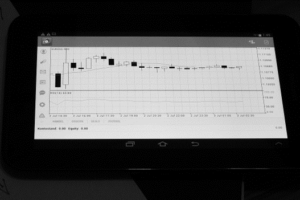
Sustainability in business has gone from being a priority for a few dedicated organizations –– Patagonia, Lush and Seventh Generation spring to mind –– to being top of mind for the biggest multinational behemoths. Almost every Fortune 500 company now issues annual sustainability reports, and in some cases, we’ve seen some fairly bold action. Case in point, with energy costs spiraling ever upwards and companies looking to move towards greener power, Bloomberg reported in June 2021 that shipping giant Maersk was actively lobbying for carbon taxes to push its sector toward cleaner fuels. Examples like this one demonstrate that sustainable strategies make commercial as well as ecological sense.
With their vast resources, larger companies are actually primed to invest huge amounts of capital into sustainable advancement. But can the humble startup also adopt best practices for sustainability? It looks a little different, to be sure, but read on for a few ways in which your startup can in fact be a sustainable business. When looking to be green and also save money, visit here the newest post on how to compare business energy prices.
1. Home working
The last two years have normalized home working like never before. And the environmental impact of fewer cars on the roads really can’t be overstated. Likewise, the energy used to heat and cool office premises comes with both environmental and fiscal costs. The pre-pandemic trend of large companies like McDonald’s and GE relocating HQ’s back from the suburbs into city centers shouldn’t be ignored though –– young talent is increasingly remaining in urban areas as a result of developments like these. This means that when physical meetings are necessitated, workspaces and conference rooms are close at hand for employees. Using a virtual office is also one of the best ways of adding a lot more privacy to your business if you work from home. You use the postal address of the virtual office for your business, and they then forward your mail to you. So just find a local virtual office service (for example if your business is in Cardiff then use a virtual office service there) and enjoy that extra privacy.
2. Responsible office design
If your startup is in a sector in which remote working is less of an option, there’s no need to spend huge amounts bedecking a commercial premises in the latest designs; you can opt for unique aspects such as flooring, e.g., Acid Brick. Unfortunately, many businesses haven’t survived the pandemic –– but a Chicago Tribune article points out that this has resulted in the widespread availability of second-hand office furniture and equipment. By opting for pre-used pieces and Recycled Financial Equipment, your business can contribute to saving energy and materials that would go into producing new furniture and business equipment (in addition to making life easier on your business account). You may also invest in energy-efficient appliances like ac units. In addition, you should schedule regular air conditioning services to maintain their efficiency.
3. Eco-friendly packaging
Consumers enjoy being able to feel like they’re making a positive impact. If your startup sells soap products, custom soap boxes actually provides you with opportunities to both “go green” and satisfy customers. You may get unique and innovative packaging designs from professional packaging companies like Epic Packaging. In addition, some larger retailers have done well to reduce the sizes and amounts of packaging they use, catching consumers’ eyes with notably minimalist material usage. Even if you don’t have the resources to pay for specially engineered packaging though, you might consider something like providing customers with goods in heavy paper bags (which can be recycled) or canvas totes (which they can reuse). You even get the opportunity to stamp your brand on this sort of packaging, helping to generate exposure and enhance your sustainability all at once. If use Brother printers, make sure you’re using Brother DK compatible labels.
4. Digital business cards
Long gone are the days when you’d find someone’s contact details by shaking out a Filofax full of cards, and as society goes ever more cashless, fewer, and fewer people are carrying wallets; often, even a mobile phone case with a few slots for cards suffices. Despite these changes though, Doorway’s overview of digital business cards reveals that six million trees are cut down each year to produce business cards –– a staggering waste of resources for items that are increasingly running out of physical real estate. The exchange for your startup is simple: You can opt for digital business cards that can be installed on mobile devices and used like digital pay transfers. Even without an internet connection, you can transfer your business card information to someone else’s phone –– a fast, convenient, modern, and much more sustainable alternative to doling out actual business cards.
5. Local shopping
What works for consumers works for companies, too. Sourcing products from local markets cuts down on transportation costs and helps contribute to the local economy’s wellbeing. Similarly, you might entertain clients or investors at mom-and-pop restaurants in your neighborhood. In addition, If you are looking to boost your restaurant and bar sales, you’ll want to consider creating a positive sensory experience for your patrons. By creating a comfortable atmosphere that people love spending time in, your customers will inevitably spend more time hanging out and getting drinks to quench their thirst. You may visit sites like https://www.atmosphere.tv/blog/bar-atmosphere/ to find out more info.
Choose independent coffee shops for meetings and book some space at a local brewery for company celebration evenings. As Forbes observes, relationships are key to small businesses. For startups at the stage of looking to put their name out there, building connections is even more vital. Put down some roots in your local area, and you’ll see green shoots as a result. And you’ll be supporting the sustainability the local economy in the process.







